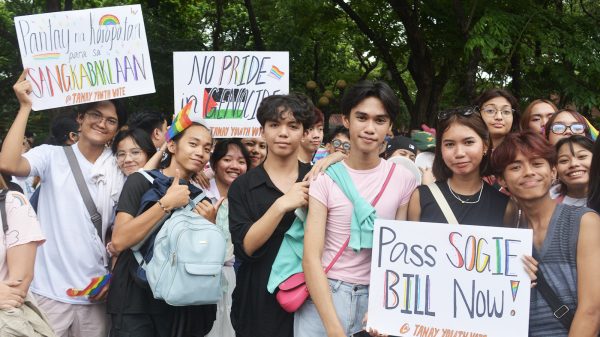UK rates of transgender identity have risen 5-fold since 2000, with the highest rise observed among 16 to 29 year olds, although the overall numbers are still small.
This is according to a study – “Transgender identity in young people and adults recorded in UK primary care electronic patient records: retrospective, dynamic, cohort study” by Douglas Gordon John McKechnie, Elizabeth O’Nions, Julia Bailey, Lorna Hobbs, Frank Gillespie and Irene Petersen – that appeared in BMJ Medicine.
Here, the researchers analyzed the diagnostic codes recorded in anonymized general practice medical records from the start of 2000 to the end of 2018 to track changes over time in the proportion of transgender 10 to 99 year olds seen at 649 general practices across the UK. The analysis included more than seven million people with at least one full calendar year of medical records information during the study period.
During this time, the overall number of people coded for the first time in their medical record as transgender was small: 2462 (0.03%), equivalent to one in every 3300 people.
A lack of comprehensive information meant that the researchers were only able to estimate the direction of transition for 1340 (54%) people: 923 had been assigned male gender at birth; 417 had been assigned female gender at birth.
Overall, newly recorded transgender identity codes increased five-fold between 2000 and 2018: roughly one person in every 70,000 was newly identified as transgender in 2000; by 2018, this had risen to around one in every 13,000 people.
But the proportion of people with recorded transgender identity differed by age group. It was highest in 16-17 year olds (about 1 in 4300 people) and in 18-29 year olds (about 1 in 3700 people).
Over time, the largest increase occurred in 16-17 year olds, among whom the rate of newly recorded trans identity rose from zero and 4 per 100,000 people in 2000, respectively, to 78 per 100,000 people in 2018. Similar patterns were evident among 18-29 year olds.
In 2018, the proportion of people identifying as transgender, and coded as such in their medical records, had reached roughly 1 in 600 among 16-17 year olds and around 1 in 800 among 18-29 year olds.
Recorded transgender identity was associated with social and economic deprivation, the data showed, with the rates of people identifying as transgender more than twice as high in the most deprived areas as they were in the least deprived areas.
This is an observational study, and the researchers acknowledge that a key limitation of their study was its reliance on coding of transgender identity in general practice clinical records, which may not always have been done accurately or done at all.
Similarly, the coding doesn’t capture the full range of gender identity or decisions made not to transition or to detransition, and it contains terms that are now outdated or often misapplied, they explain.
The data also only go up to 2018: recording rates of transgender identity in general practice may very well have changed since then, they added.
“Increasing rates of transgender codes in records may represent increasing numbers of people presenting to primary care with gender related concerns. Reasons for such may include increased availability of information, support and resources and increased societal awareness and acceptance, all of which have partially destigmatised transgender identities and may make coming out as transgender easier for individuals,” explain the researchers.
As to the observed link between deprivation and transgender identity, the researchers suggest that this is more difficult to fathom. “We cannot confidently explain the association from our data,” they wrote.
“Transgender individuals in wealthier areas may be more able to afford specialist gender care privately, which can be accessed entirely independently of NHS primary care. This trend may be increasing with longer NHS waiting lists. Therefore, individuals from a wealthier background might bypass NHS services entirely,” they suggested.

























































